Water woes : Mohmand facing drought-like situation
Wells have dried up, agriculture is non-existent, and people are trying to relocate

As the summers get hotter and whatever scarce water there is dries up, the water tanker trips start increasing for the wealthy and for the poor the miles walked to fetch water see a significant upsurge - such is the reality of climate change.
The heat waves and declining groundwater resources have made the people of Mohmand tribal district even more aware of how climate change has adversely impacted their lives. So much so that Mohtarma Khan, a local resident of Koz Gandao, a village suffering from water scarcity, fears that people will soon start contracting diseases en masse due to the non-availability of clean water.
“Ten years ago, the water was aplenty but now the groundwater levels have dropped down to 300 feet. Residents who live in the foothills are facing even more difficulties.” Mohtarma says that some in the village relied on private tankers to fulfil their needs, “however, for others paying Rs 1,500 to 2,500 is not affordable.”
Currently, three tehsils of Mohmand Agency, which is roughly a 2 hour drive from Khyber Pakhtunkhwa’s (K-P) capital Peshawar, are battling with the grave consequences of extremely low levels of groundwater. The three tehsils - Halimzai, Khoizai, and Baizai - due to a mixture of extremely hot weather and low rainfall have dried up wells and a population constantly trying to relocate closer to the water.
According to Tafseer Mohmand, a social worker from Khoizai and a former candidate for the Provincial Assembly, said that even before and after the FATA merger, water shortage was the foremost basic problem in the upper tehsils of Mohmand District and the issue continues to get worse each day. “For the last 20 years, politicians have promised solutions but the people of this area have been lied to in the form of empty campaign promises.” Tafseer, reflecting on the promises made, informed that elected representatives approved a few solar tube wells in the area but those who got the wells were “influential or party workers.” The social worker further added that even the current MNA of the area had promised to supply water from the Kabul River through a pipeline for Khoizai and Baizai but that promise too had not been fulfilled even after 4 years.
As a result of the empty promises, there is no electricity in Khoizai and Baizai, which are situated near the Pak-Afghan border. Wells that were dug up in the tehsils with the help of Asian Development Bank (ADP) funds, are now empty and the women and children often have to walk along with their mules for 2 to 3 kilometres to get water. Those who live in the tehsils could previously rely on agricultural activities to fend for themselves but now are unemployed and devoid of cheap food.
Nisar Mohmand, the MPA elected from Lower Mohmand PK-103, when asked about the plight of his people, said that he realised their suffering but there was little he could do. “After failing to get development funds from the government, I paid for a water bore out of my pocket but that is not a permanent fix for our problems.” Nisar, talking about the gravity of the situation and the provincial government’s inattention, said that 8 tehsils in Mohmand were at a high risk of drought. “The government’s only focus is on the mineral resources of the Mohmand Agency not the problems of the people,” Nisar lamented.
Published in The Express Tribune, June 27th, 2022.


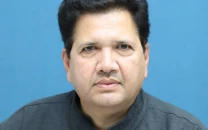
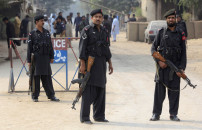
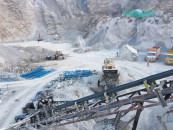
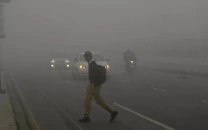
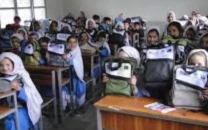












COMMENTS
Comments are moderated and generally will be posted if they are on-topic and not abusive.
For more information, please see our Comments FAQ